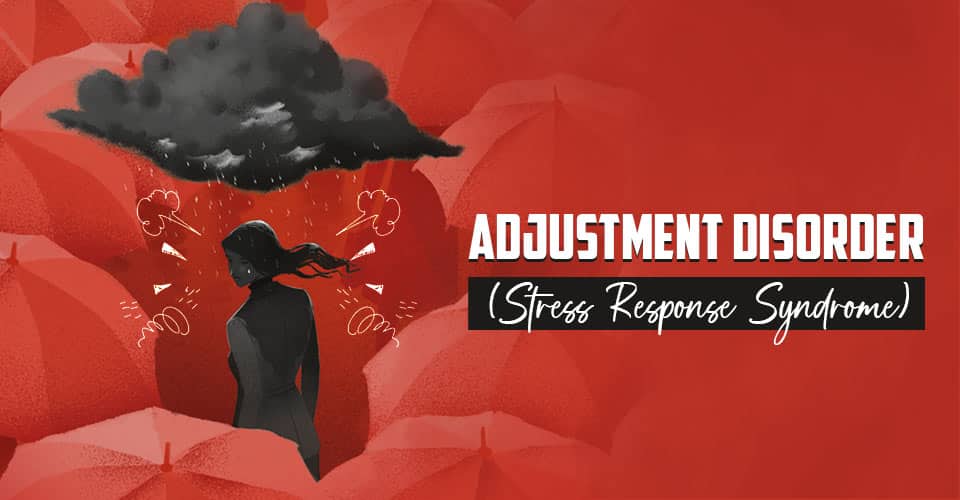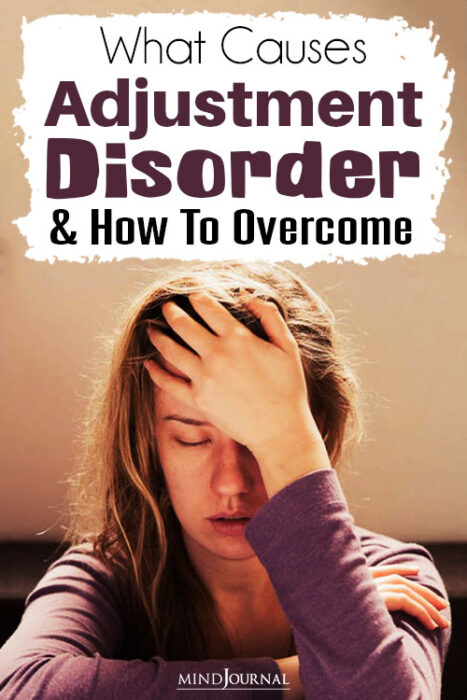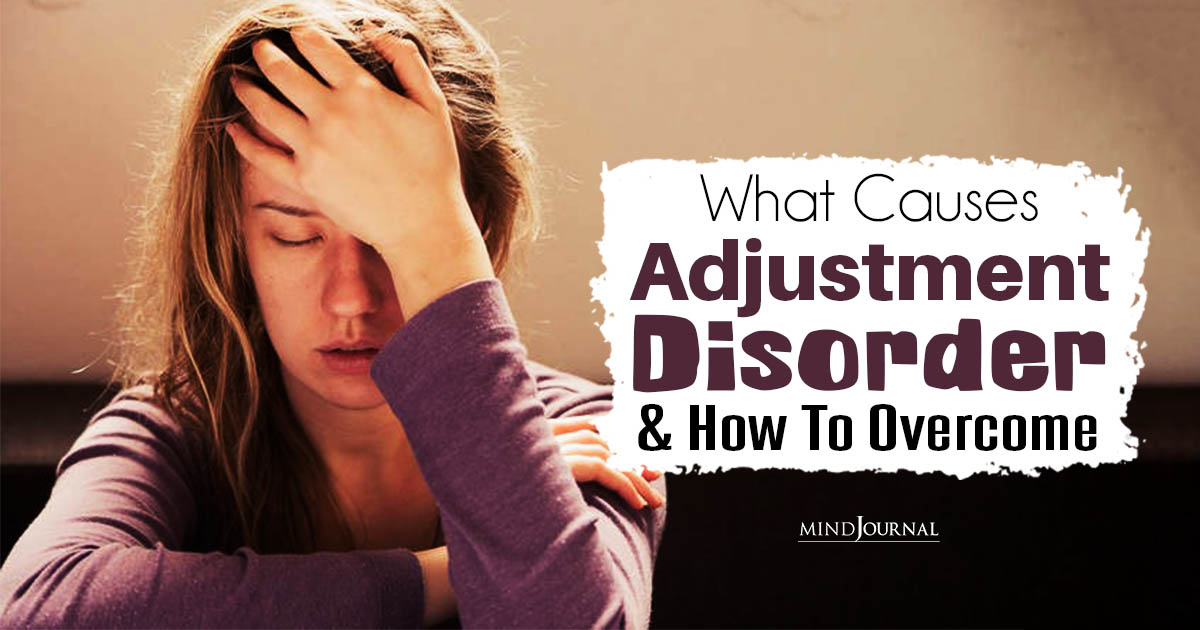Life is a journey filled with ups and downs, and each of us faces numerous challenges along the way. While most people find ways to adapt and cope with these challenges, some individuals may experience significant difficulties in adjusting to life’s stressors. This can lead to a condition known as adjustment disorder. But what causes adjustment disorder?
Today, we will delve into the intricacies of adjustment disorder, exploring what is adjustment disorder, its symptoms, causes, and available treatment for adjustment disorder in adults. So, let’s gain a better understanding of adjustment disorder and how it affects individuals in their daily lives.
What is Adjustment Disorder?

Adjustment disorder, also referred to as stress response syndrome, is a mental health condition characterized by an individual’s inability to cope with or adapt to stressful life events.
Experts define it as “a maladaptive reaction to identified stressor, including significant life change or stressful event.” These events can be major life changes, such as the loss of a loved one, divorce, job loss, or relocation, or they can be more minor in nature, such as academic or work-related stress, financial difficulties, or relationship problems.
Unlike other mental health disorders, adjustment disorder is a time-limited condition, typically resolving within six months after the stressful event has ended. However, without proper recognition and treatment, adjustment disorder can significantly impair an individual’s emotional well-being and daily functioning.
Related: Am I Stressed or Anxious? How to Recognize the Difference and Cope
Symptoms of Adjustment Disorder
The symptoms of adjustment disorder can vary widely depending on the individual and the specific stressor they are facing. However, there are some common emotional, behavioral, and physical symptoms frequently associated with this condition.
1. Emotional Symptoms
- Persistent feelings of sadness, hopelessness, or emptiness.
- Anxiety, excessive worrying, or fearfulness.
- Irritability, anger, or hostility.
- A sense of detachment or feeling disconnected from others.
- Low self-esteem or feelings of worthlessness.
2. Behavioral Symptoms
- Social withdrawal or isolation from loved ones.
- Changes in sleep patterns, such as insomnia or excessive sleep.
- Appetite changes, leading to weight loss or gain.
- Restlessness, fidgeting, or an inability to relax.
- Poor concentration or difficulty making decisions.
3. Physical Symptoms
- Headaches, stomach aches, or other unexplained physical complaints.
- Fatigue or lack of energy.
- Muscle tension or aches.
- Increased heart rate or palpitations.
- Sweating, trembling, or shortness of breath.
Related: How Stress Turns Us Into Someone Else: Your Stressed Self vs Your Best Self
What Causes Adjustment Disorder?
Adjustment disorder can be triggered by a wide range of stressors, and different individuals may react differently to the same event. However, certain factors contribute to the development of adjustment disorder:
1. Life Changes
Major life transitions, such as the death of a loved one, divorce, or retirement, can deeply impact one’s emotional well-being. The inability to adapt to these changes may lead to adjustment disorder.
2. Social and Relationship Challenges
Relationship conflicts, interpersonal problems, or difficulties in adjusting to new social environments can significantly contribute to the development of adjustment disorder.
3. Work-related Stress
Job loss, job dissatisfaction, excessive workload, or conflicts at the workplace can induce chronic stress and trigger adjustment disorder symptoms.
4. Financial Hardship
Financial difficulties, such as bankruptcy, foreclosure, or excessive debt, can generate immense stress, leading to adjustment disorder.
5. Academic Pressures
Students facing academic challenges, whether it be transitioning to a new school, struggling with coursework, or facing intense pressure to perform well, may develop adjustment disorder.
6. Traumatic Events
Exposure to traumatic events, such as natural disasters, accidents, or physical or sexual abuse, can significantly disrupt an individual’s ability to cope, resulting in adjustment disorder. This is what causes adjustment disorder.
7. Vulnerabilities
Individuals with a history of mental health conditions, such as anxiety or depression, may be more susceptible to developing adjustment disorder.
8. Lack of Support
Inadequate social support systems, including a lack of close relationships or limited access to resources, can exacerbate the impact of stressors, contributing to adjustment disorder.
9. Cultural Factors
Cultural norms and expectations can influence an individual’s susceptibility to adjustment disorder. Factors like stigma, discrimination, or pressure to conform may play a role in its development.
Related: Toxic Stress in Adults: 5 Key Behaviors and Tips To Overcome
Treatment for Adjustment Disorder in Adults
The good news is that adjustment disorder is a treatable condition, and various approaches can help individuals navigate their way through this challenging phase:
1. Psychotherapy
Talk therapy, such as cognitive-behavioral therapy (CBT), can be highly effective in helping individuals identify and modify negative thought patterns and develop healthier coping mechanisms. It provides a safe space for exploring emotions, gaining insights, and building resilience.
2. Medication
In some cases, medication may be prescribed to alleviate specific symptoms associated with adjustment disorder, such as anxiety or depression. Antidepressants or anti-anxiety medications can be helpful when symptoms are severe or significantly impacting daily functioning.
3. Support Networks
Engaging with support networks, such as family, friends, or support groups, can provide a valuable source of encouragement and understanding. Sharing experiences and receiving empathy from loved ones or others who have faced similar challenges can be immensely helpful in the recovery process.
4. Stress Management Techniques
Learning and implementing stress management techniques, such as deep breathing exercises, mindfulness meditation, regular physical exercise, and relaxation techniques, can aid in reducing overall stress levels and promoting emotional well-being.
5. Lifestyle Changes
Making positive changes in one’s lifestyle can have a significant impact on adjustment disorder. Prioritizing self-care, maintaining a healthy diet, getting enough sleep, and engaging in activities that bring joy and relaxation can contribute to overall well-being.
6. Time and Patience
It’s important to remember that adjustment disorder is a time-limited condition. With time and patience, the intensity of symptoms tends to decrease, and individuals gradually regain their ability to cope with life’s stressors.
Related: 6 Strategies to Help Overcome Financial Stress and Anxiety
Takeaway
Adjustment disorder is a common and understandable response to the challenges and stressors that life presents. It’s crucial to recognize the symptoms, understand what causes adjustment disorder and seek appropriate support and treatment.
Remember, you are not alone in your struggles, and there are effective strategies and resources available to help you navigate through this difficult period. With the right support, self-care, and resilience-building techniques, you can overcome adjustment disorder and emerge stronger on the other side.
Take the first step towards healing by reaching out to a mental health professional or confiding in a trusted friend or family member. Remember, there is hope, and a brighter future awaits you.
Frequently Asked Questions (FAQs):
Can adjustment disorder be cured?
Adjustment disorder can be treated with therapy and support, but it’s not always fully curable.
What is the difference between anxiety and adjustment disorder?
While anxiety is a general feeling of unease, adjustment disorder is a specific reaction to a stressor or life change.
Is PTSD an adjustment disorder?
No, PTSD (Post-Traumatic Stress Disorder) is a distinct mental health condition, different from adjustment disorder.









Leave a Reply
You must be logged in to post a comment.